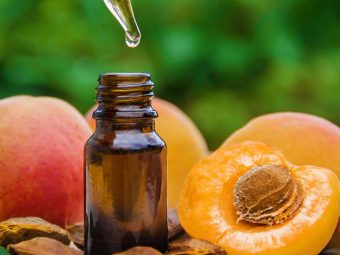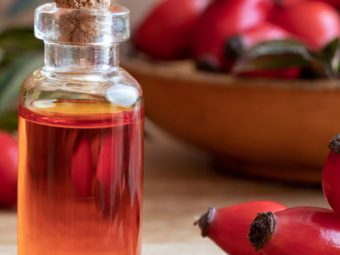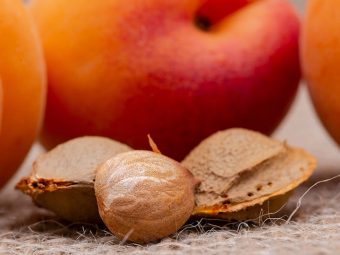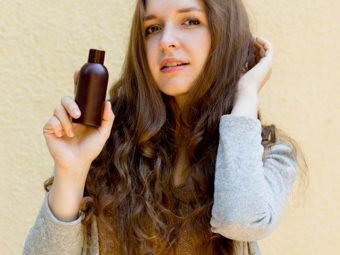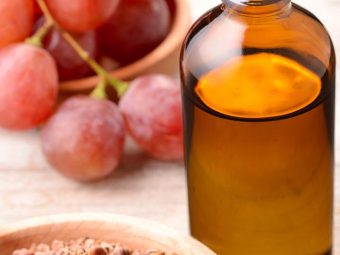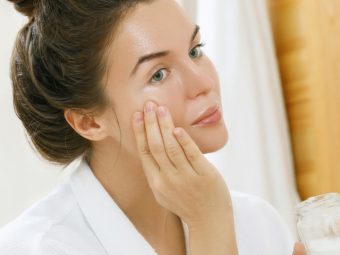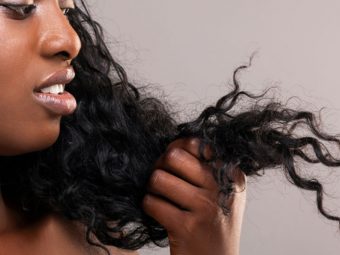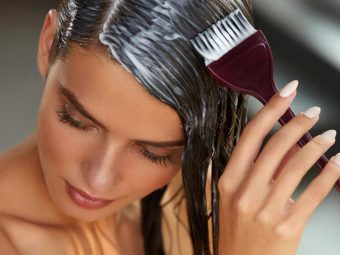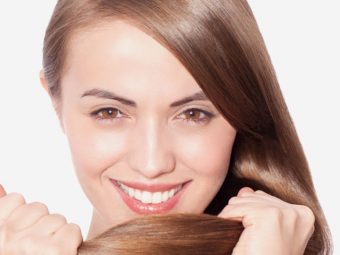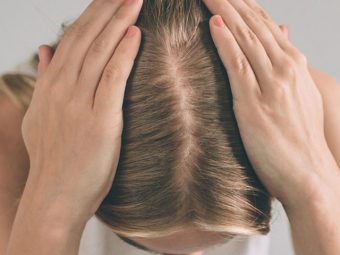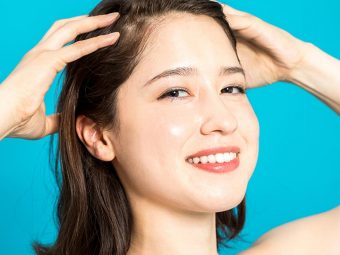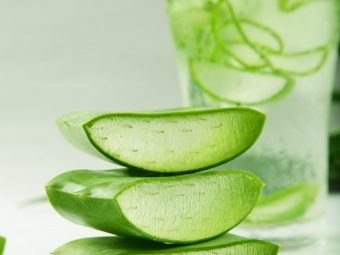Apricot Oil For Hair: Benefits And How To Use It
Give your scalp and hair the best of care with this life-altering and super-effective oil.
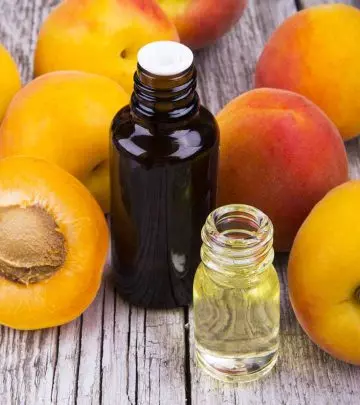
Image: Shutterstock
We all know the hair benefits of various oils like coconut, almond, and olive oils; we do not know much about apricot oil. Apricot kernel oil for hair is beneficial in many ways. Using apricot hair oil at least twice a week improves the hair texture, makes the hair shine, and maintains hair health. This article discusses the benefits of apricot oil and different ways to include this oil in your daily hair care regimen. Scroll down to read more.
 Know Your Ingredient: Apricot Oil
Know Your Ingredient: Apricot OilWhat Is It?
Apricot oil, also known as apricot kernel oil, is extracted from the Prunus Armeniaca kernels (apricot).
What Are Its Benefits?
Apricot oil help with reducing hair fall and promotes hair growth.
Who Can Use It?
If you have curly or coily hair, apricot oil can be the most beneficial oil for you.
How Often?
You can apply it everytime you wash your hair.
Caution
Sometimes it can cause irritation and redness o the scalp, so a patch test is recommended..
In This Article
Benefits Of Apricot Oil For Hair
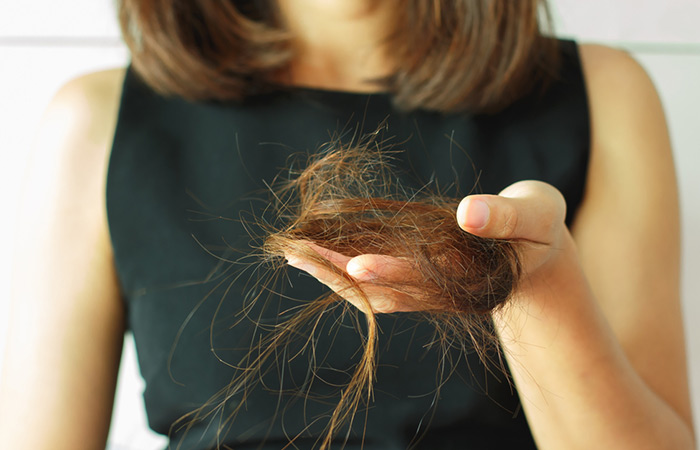
Apricot oil is extracted from the apricot kernel or pit and has medicinal and pharmaceutical uses (1). It is a clear oil that is yellowish-orange. It can benefit hair in various ways.
- Apricot oil is rich in linoleum, linolenic, palmitic, stearic, and oleic acids (essential fatty acids). Its high fatty acid content makes it similar to sweet almond oil (2). It also contains vitamins A, C, and E, and minerals like iron, copper, calcium, magnesium, and potassium. These nutrients play a role in hair health.
- Apricot oil contains vitamin E that may help in the treatment of hair loss. Vitamin E is an antioxidant that is known to reduce oxidative stress in the scalp. Research shows that oxidative stress may cause alopecia (3).
- It contains vitamin C as well, which promotes hair growth (4). A deficiency in vitamin C causes scurvy, which may also result in hair loss (5).
- The iron in apricot oil also helps. Iron deficiency is linked to hair loss as well (5).
- Apricot oil contains linoleic and linolenic acid. These fatty acids may stimulate hair growth (6). The fats may also moisturize the dry scalp.
- Research shows that the oil can be used to treat dandruff (7).
- Anecdotal evidence suggests that the oil may control hair fall.
- It could be used to condition the scalp and as a hair wax (8). It may also be used to detangle hair.
 Did You Know?
Did You Know?Apricots are said to be originally from China or Armenia. Apricot oil has been used by Ancient Chinese healers and Ayurveda to treat several skin and hair conditions.
Read on to know the different ways you can use apricot oil to stimulate hair growth and deal with other hair issues
How To Use Apricot Oil
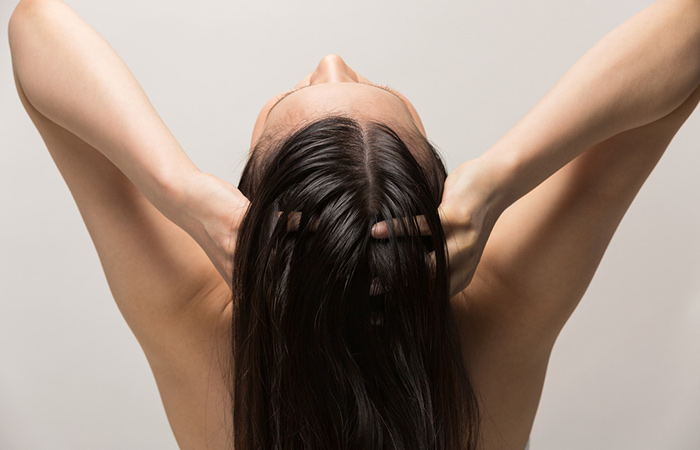
- Scalp Massage: Massaging the scalp can help increase blood flow and enhance hair thickness (9). You can massage your scalp every morning with apricot oil or mix it with natural oils. Leave it on for 30 to 40 minutes and shampoo as usual.
- Hot Oil Treatment: Warm the apricot oil a little and apply it to your scalp and hair. This warm oil will open your pores and nourish the scalp deep within.
- Aromatherapy: A study showed that pairing a carrier oil with essential oil can help stimulate hair growth through aromatherapy (10). You can also try massage-therapy by mixing apricot oil with other essential oils.
- Hair Masks: Apricot oil can be added to hair masks and packs. The oil may help hair hydration and keeps it moisturized. Pairing it with other natural ingredients can enhance its effectiveness.
- Hair Products: You can add apricot oil to other hair care products like shampoos and conditioners. This can add extra hair nourishment and improve hair strength and scalp health.
Pallavi, a blogger, writes about her needing to find the perfect routine for her frizzy hair. Living in harsh weather conditions with hard water to boot, her hair needs a healthy dose of moisture. Among her haircare routines is oiling with a customized mixture. She writes, “To prepare my personal favourite oil mixture, you need 100 ml of coconut oil, 100 ml of apricot or almond oil, 20 ml castor seed oil, 1 tablespoon henna, and 1 teaspoon of methi seeds.” Pallavi also mentions that this is an integral part of her hair care routine, adding, “I either keep it overnight or for at least two hours before washing my hair for its better absorption (i).”
 Quick Tip
Quick TipYou can make your own pre-shampoo conditioner with 1 tablespoon of apricot oil, 1 egg yolk, and 2 drops of an essential oil. Mix all the ingredients properly and apply the mixture to your scalp. Leave it on for 30 minutes and rinse it off with warm water.
While apricot oil is safe, there are some adverse effects you should be aware of.
Side Effects Of Using Apricot Oil

Apricot oil is generally safe for use on hair and skin. But be wary if you are allergic to apricots. Anecdotal evidence suggests the oil may cause skin redness or irritation. Perform a patch test before you use the oil. Stop use and visit your doctor if you experience any adverse reactions.
Infographic: A Complete Guide To Using Apricot Oil For Hair
While everyone uses coconut or olive oil for their hair, many are not aware that apricot oil is beneficial for the hair too. It contains vitamins and minerals that promote healthy hair growth and improve its shine. Check out the infographic below for the benefits and different ways of using apricot oil for your hair.

Illustration: StyleCraze Design Team
Though used in many home remedies, apricot oil is not something that has received enough limelight. You can use apricot oil for hair-related issues like hair loss, dry scalp, and dandruff. The presence of essential vitamins, nutrients, and minerals makes it an excellent choice to add to your hair care routine. To reap maximum benefits, you can use apricot oil for scalp massages, hot oil hair treatment, aromatherapy, hair masks, and add in hair products. However, you may experience allergic reactions if you are allergic to apricots. Therefore, it is best to do a patch test before incorporating it into your hair care regimen.
Frequently Asked Questions
Is apricot oil light or heavy?
Apricot oil is light and easily absorbed in the scalp.
Is apricot oil good for low porosity hair?
Yes. As apricot oil is easily absorbed into the hair shafts, it is a great option for low-porosity hair.
Which is better for hair – apricot oil or almond oil?
Both are good for hair. However, almond oil is lighter than apricot oil and a better option for oily scalp. Apricot oil can be a good alternative for anyone with a nut allergy.
Key Takeaways
- Apricot oil is replete with linoleum, linolenic, stearic, oleic, and palmitic acids, vitamins A, C, and E, and minerals like iron, copper, calcium, magnesium, and potassium.
- All these nutrients play a role in hair health.
- Apricot oil may help treat hair loss and promote hair growth.
- Scalp massage and hot oil treatment are the two best ways to use apricot oil for hair growth.
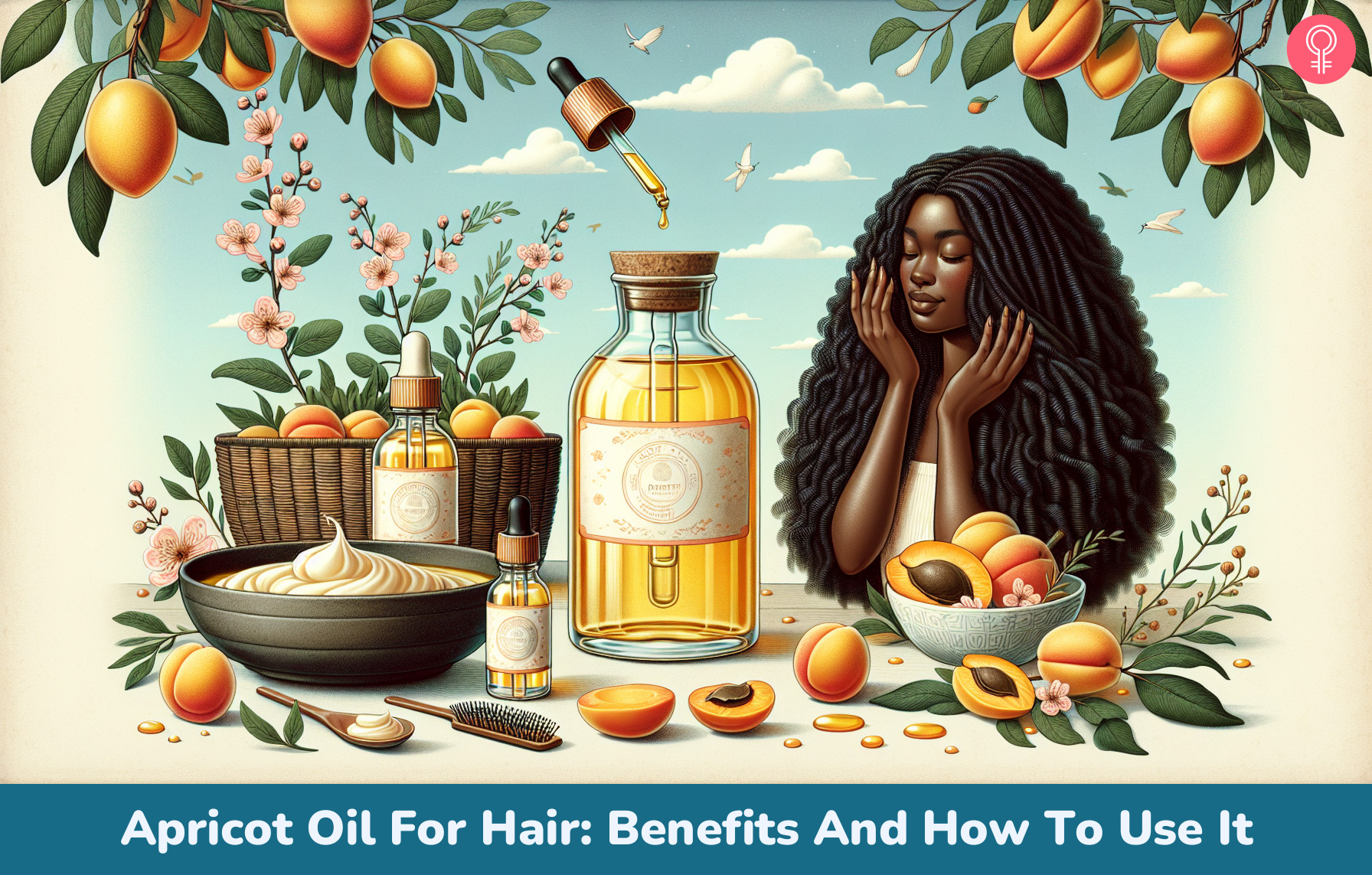
Image: Dall·E/StyleCraze Design Team
Discover the amazing benefits of Apricot Kernel Oil for your skin, hair, and face! Check out this video to learn how this natural oil can nourish and protect your skin.
Personal Experience: Source
StyleCraze's articles are interwoven with authentic personal narratives that provide depth and resonance to our content. Below are the sources of the personal accounts referenced in this article.
i. My hair care routine| Hair wash techniquehttps://pallavinv.wordpress.com/2015/02/05/my-hair-care-routine/
References
Articles on StyleCraze are backed by verified information from peer-reviewed and academic research papers, reputed organizations, research institutions, and medical associations to ensure accuracy and relevance. Read our editorial policy to learn more.
- Medicinal Value of Apricot: a Review
https://www.researchgate.net/publication/328634678_Medicinal_Value_of_Apricot_A_Review - Studies on Physico-Chemical Characteristics and Fatty Acid Composition of Wild Apricot (prunus Armeniaca Linn.) Kernel Oil
https://www.researchgate.net/publication/289239944_Studies_on_physico-chemical_characteristics_and_fatty_acid_composition_of_wild_apricot_Prunus_armeniaca_Linn_kernel_oil - Effects of Tocotrienol Supplementation on Hair Growth in Human Volunteers
https://www.ncbi.nlm.nih.gov/pmc/articles/PMC3819075/ - l-Ascorbic acid 2-phosphate promotes elongation of hair shafts via the secretion of insulin-like growth factor-1 from dermal papilla cells through phosphatidylinositol 3-kinase
https://pubmed.ncbi.nlm.nih.gov/19416266/ - The Role of Vitamins and Minerals in Hair Loss: a Review
https://www.ncbi.nlm.nih.gov/pmc/articles/PMC6380979/ - Standardization of Technology for Extraction of Wild Apricot Kernel Oil at Semi-Pilot Scale
https://www.researchtrend.net/bfij/bf11/9%20DR%20ANIL%20GUPTA.pdf - Phytochemical Screening Acute Toxicity Analgesic and Antiinflammatory Effects of Apricot Seeds Ethanolic Extracts
https://javs.journals.ekb.eg/article_62723_db880ff4477798bd54149f1355dbea7b.pdf - Safety Assessment of Plant-Derived Fatty Acid Oils
https://journals.sagepub.com/doi/pdf/10.1177/1091581817740569 - Standardized Scalp Massage Results in Increased Hair Thickness by Inducing Stretching Forces to Dermal Papilla Cells in the Subcutaneous Tissue
https://www.ncbi.nlm.nih.gov/pmc/articles/PMC4740347/ - Essential Oils Used in Aromatherapy: a Systemic Review
https://www.sciencedirect.com/science/article/pii/S2221169115001033







